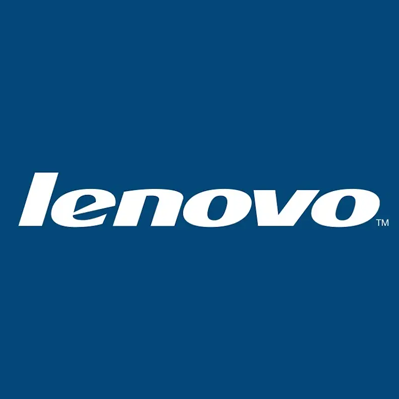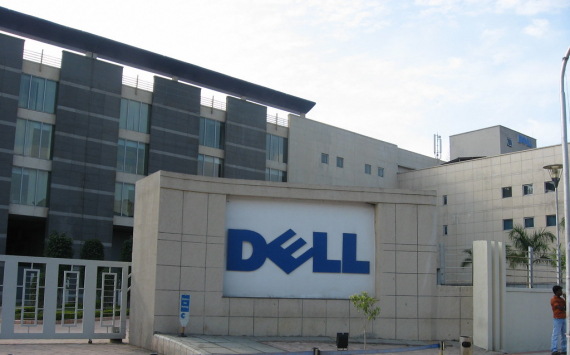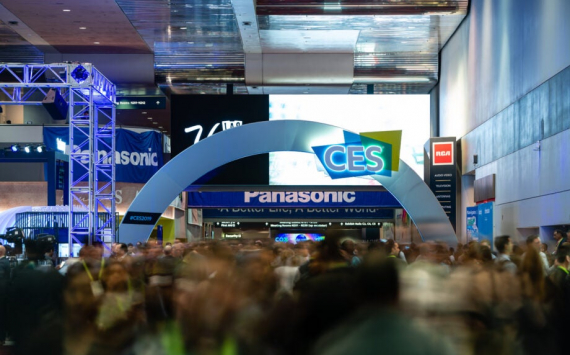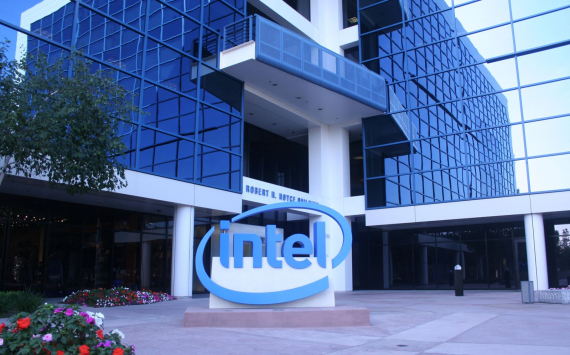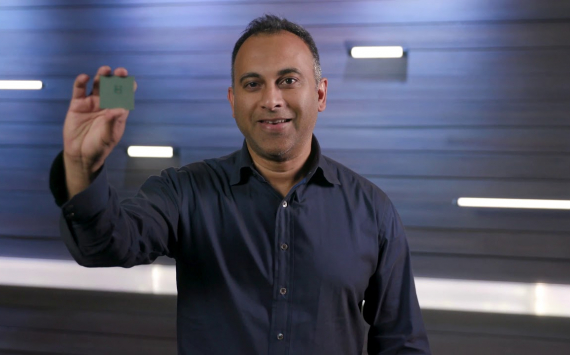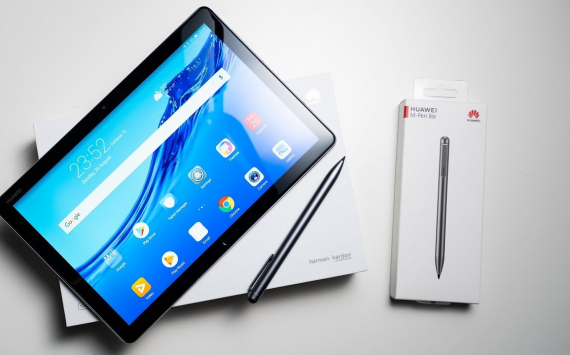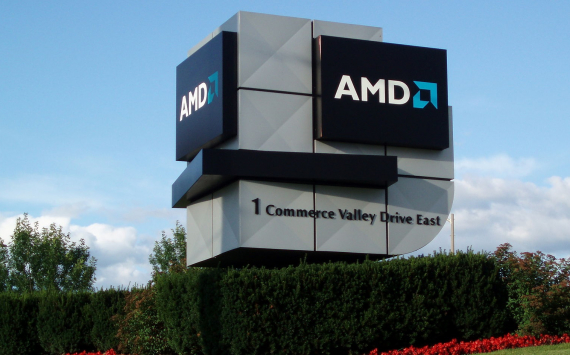Description
Lenovo Group Limited, often shortened to Lenovo is a Chinese multinational technology company. Incorporated in Hong Kong, it has global headquarters in Beijing, China, operational headquarters in Morrisville, North Carolina, US, and an operational center in Singapore. The company designs, develops, manufactures, and sells personal computers, tablet computers, smartphones, workstations, servers, supercomputers, electronic storage devices, IT management software, and smart televisions, and is the world's largest personal computer vendor by unit sales as of October 2020. It also markets the ThinkPad and ThinkBook business lines of laptop computers; IdeaPad, Yoga, and Legion consumer lines of laptop computers; and the IdeaCentre and ThinkCentre lines of desktop computers.
Lenovo has operations in over 60 countries and sells its products in around 180 countries. It has research centers in Beijing, Chengdu, Yamato (Kanagawa Prefecture, Japan), Shanghai, Shenzhen, and Morrisville (North Carolina, US), and also has Lenovo NEC Holdings, a joint venture with NEC that produces personal computers for the Japanese market.
Lenovo was founded in Beijing in November 1984 as Legend, and was incorporated in Hong Kong in 1988. Lenovo acquired IBM's personal computer business in 2005 and agreed to acquire its Intel-based server business in 2014. Lenovo entered the smartphone market in 2012 and as of 2014 was the largest vendor of smartphones in mainland China. In 2014, Lenovo acquired Motorola Mobility from Google. In 2017, Lenovo acquired Fujitsu's personal computer business.
Lenovo is listed on the Hong Kong Stock Exchange and is a constituent of the Hang Seng China-Affiliated Corporations Index, often referred to as the "red chip" stocks.
History
2014–present: Purchase of IBM server lines and other acquisitions
IBM's sold its Intel-based server lines, including IBM System x and IBM BladeCenter, to Lenovo in 2014. Lenovo says it will gain access to more enterprise customers, improve its profit margins, and develop a closer relationship with Intel, the maker of most server processors, through its acquisition of IBM's x86-based server business. On 1 October 2014, Lenovo closed its acquisition of IBM's server division, with the final price put at $2.1 billion. Lenovo said this acquisition came in at a price lower than the previously announced $2.3 billion partially because of a change in the value of IBM inventories. The deal has been already approved by Europe, China and the United States. The United States Department of Treasury Committee on Foreign Investment in the United States (CFIUS) was reportedly the last hurdle for Lenovo, since the United States has the strictest policies. According to Timothy Prickett-Morgan from Enterprise Tech, the deal still awaits "approval of regulators in China, the European Commission, and Canada".
After closing, Lenovo said that its goal was to become the world's largest maker of servers. Lenovo also announced plans to start integrating IBM's workforce. The acquisition added about 6,500 new employees to Lenovo. Lenovo said that it has no immediate intent to cut jobs. Lenovo said that positions in research and development and customer-facing roles such as marketing would be "100% protected", but expected "rationalization" of its supply chain and procurement.
In April 2014, Lenovo purchased a portfolio of patents from NEC related to mobile technology. These included over 3,800 patent families in countries around the world. The purchase included standards-essential patents for 3G and LTE cellular technologies and other patents related to smartphones and tablets.
On 29 January 2014, Google announced it would sell Motorola Mobility to Lenovo for US$2.91 billion. When Google and Lenovo first announced the acquisition of Motorola, they said the purchase would be funded with $660 million in cash, $750 million in Lenovo stock, and a $1.5 billion promissory note due in three years. As of February 2014, Google owns about 5.94% of Lenovo's stock. The deal includes smartphone lines like the Moto X and Moto G and the Droid Turbo. Lenovo also got the future Motorola Mobility product roadmap. Google will retain the Advanced Technologies & Projects unit and all but 2,000 of the company's patents. Lenovo will receive royalty free licenses to all the patents retained by Google.
Lenovo has stated that Motorola was purchased in large part due to its long-standing relationships with cellular network operators in the United States and the United Kingdom. Lenovo previously had difficulty breaking into the United Kingdom due to the high proportion of customers who sign contracts and receive phones from carriers. A Lenovo executive said, "There are lots of reasons why we bought Motorola but primarily because it has a history of distribution in the UK. Motorola has long and established relationships with routes to market in North America and the UK, where people are tied to their network operator."
Lenovo received approval from the European Union for its acquisition of Motorola in June 2014. In a statement the European Union said, "The Commission concluded that the proposed acquisition would not raise competition concerns in relation to smart mobile devices (smartphones and tablets), given the limited market position of the parties and the presence of other strong suppliers in the market." At the time of the EU approval Lenovo said it was on track to win final approval of the merger in the United States.
The acquisition was completed on 30 October 2014. Motorola Mobility will remain headquartered in Chicago, and continue to use the Motorola brand, but Liu Jun, president of Lenovo's mobile device business, became the company's leader.
In May 2015, Lenovo revealed a new logo at Lenovo Tech World in Beijing, with the slogan "Innovation Never Stands Still". Lenovo's new logo, created by Saatchi, can be changed by its advertising agencies and sales partners, within restrictions, to fit the context. It has a lounging "e" and is surrounded by a box that can be changed to use a relevant scene, solid color, or photograph. Lenovo's Chief Marketing Officer David Roman said, "When we first started looking at it, it wasn't about just a change in typography or the look of the logo. We asked 'If we really are a net-driven, customer-centric company, what should the logo look like?' We came up with the idea of a digital logo first … designed to be used on the internet and adaptable to context."
In early June 2015, Lenovo announced plans to sell up to US$650 million in five-year bonds denominated in Chinese yuan. The bonds were sold in Hong Kong with coupon ranging from 4.95% to 5.05%. This is only the second sale of bonds in Lenovo's history. Financial commentators noted that Lenovo was paying a premium to list the bonds in yuan given relatively low costs for borrowing in US dollars.
Lenovo said that its x86 servers will be available to all its channel partners. Lenovo plans to cut prices on x86 products in order to gain market share. This goes in alliance with IBM's vision of the future around cloud technologies and their own POWER processor architecture.
Lenovo's acquisition of IBM's businesses is arguably one of the greatest case studies on merging massive international enterprises. Though this acquisition in 2005 ultimately resulted in success, the integration of the businesses had a difficult and challenging beginning. Lenovo had employees from different cultures, different backgrounds, and different languages. These differences caused misunderstandings, hampering trust and the ability to build a new corporate culture. At the end of its first two years, Lenovo Group had met many of its original challenges, including integrating two disparate cultures in the newly formed company, maintaining the Think brand image for quality and innovation, and improving supply chain and manufacturing efficiencies. However, Lenovo had failed to meet a key objective of the merger: leveraging the combined strength of the two companies to grow volume and market share. In order to achieve success, Lenovo embraced diversify at multiple levels- business model, culture, and talent. By 2015, Lenovo grew into the world's number 1 PC maker, number 3 smartphone manufacturer and number 3 in the production of tablet computers.
In March 2017, Lenovo announced it was partnering with Fort Lauderdale, Florida-based software storage virtualization company DataCore to add DataCore's parallel I/O-processing software to Lenovo's storage devices. The servers were reportedly designed to outperform Storage Area Network (SAN) SAN arrays.
The signing ceremony for the LenovoEMC joint venture, with Yang Yuanqing standing in the middle (fifth from the left) in the back row
In 2017 Lenovo formed a joint venture with Fujitsu and the Development Bank of Japan (DBJ). In the joint venture, Fujitsu would sell Lenovo a 51% stake in Fujitsu Client Computing Limited. DBJ would acquire a 5% stake.
In September 2018 Lenovo and NetApp announced about strategic partnership and joint venture in China. As part of strategic partnership Lenovo started two new lines of storage systems: DM-Series and DE-Series. Both storage systems using Lenovo hardware and NetApp software: DM-Series using ONTAP OS and DE-Series SANtricity OS.
LenovoEMC was a joint venture of Lenovo and EMC and offered network-attached storage (NAS) solutions. LenovoEMC's products were formerly offered under the Iomega brand name. As of 2018, lenovoemc.com now redirects to lenovo.com, and Lenovo has retired all of the LenovoEMC products on their product page advising that the product(s) are no longer available for purchase on lenovo.com.
In 2018, Lenovo became the world's largest provider for the TOP500 supercomputers.


